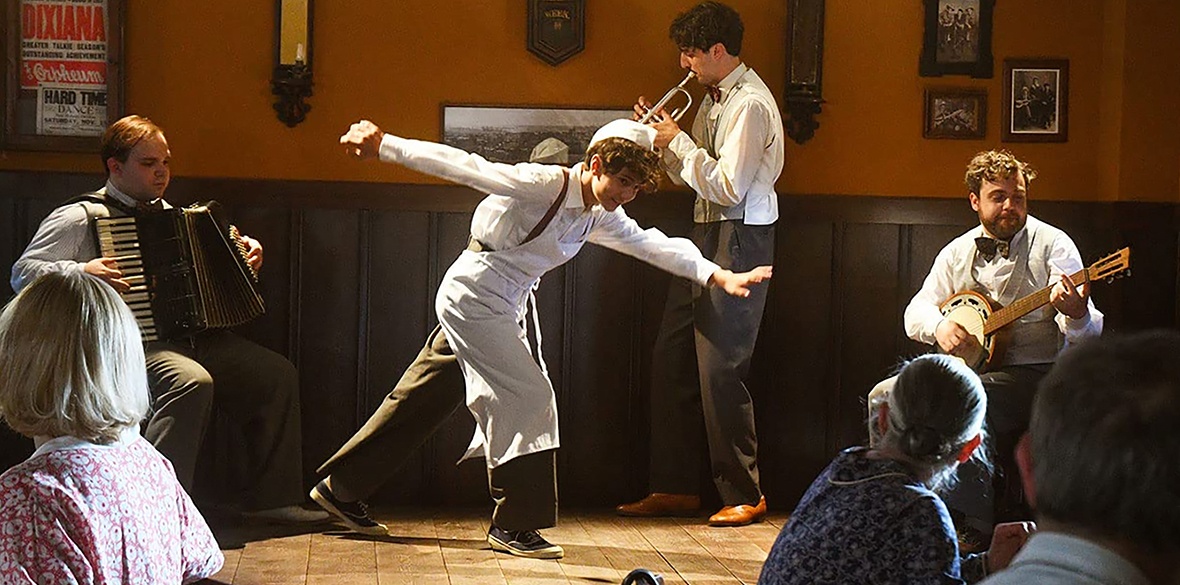This is the last article you can read this month
You can read more article this month
You can read more articles this month
Sorry your limit is up for this month
Reset on:
Please help support the Morning Star by subscribing here
AFTER last year’s virtual edition, Berlin’s huge film festival returned this year to in-person events, with a boldly international programme the scope of which we we haven’t seen for some time.
The Golden Bear went to Alcarras by female Spanish director Carla Simon is a semi-autobiographical, bittersweet tale about belonging, set in her native village (Alcarras). Simon focuses solidly on the earth, and those who work it, examining society’s fractured relationship with agriculture and the disappearance of the old way of life.
The grandfather of the family was given the right to farm the land by the wealthy Pinyol clan during the Spanish civil war, in the days when your word was your bond. Nothing exists on paper, and the new Pinyol now wants to tear down the peach orchards to build fields of solar panels. With stunning camerawork in deliberately natural colour, it is an elegant film, acted with real power and a strong feeling for its ordinary farmers.
Paolo Taviani’s Leonora Addio, which received the critics’ Fipresci Award, was a revelation. Directing alone, for the first time since the death of his brother Vittorio in 2018, Paolo brought back the radical, Marxist filmmaking that once electrified Italian cinema.
In Leonora Addio Taviani returns to Luigi Pirandello whose stories inspired the brothers in 1984 to make Kaos.
Leonora Addio is composed of two parts: the first recounts the extraordinary adventure of the ashes of the Nobel Prize for Literature winner Pirandello while the second is based on Pirandello’s short story The Nail, in which a young Italian immigrant, Bastianeddu, forced to follow his father across the ocean to the US, commits an atrocious act.
Like Kaos the story is gritty and realistic, filmed in an impressionistic, at times Brechtian manner, entering a dreamlike and symbolic storytelling. Reflecting on life, death, and memory, imbued with Pirandello’s soul, it is beautifully lit with simple, unobtrusive direction, while the music throughout works as a counterpoint to a story that could have come from an opera.
Another popular film in competition was Robe of Gems, a solid debut from the Mexican-Bolivian filmmaker Natalia Lopez Gallard. Centred on three women searching for a missing person in rural Mexico, it is a visually striking, moving, and profoundly unsettling study of the impact of male violence on the lives of women and children.
Kamila Andini’s Nana, Before, Now and Then also deserves attention. A beguiling drama set in 1960s Indonesia about an unhappy young woman who has lost her first husband during the anti-communist purges. The film is a summation of history as memory and experience, achieved with remarkably little dialogue and a tremendous sense of tension and atmosphere.
Chinese director Li Ruijin’s Return to Dust follows two outcasts who are forced into an arranged marriage. Li’s direction is immaculate, imaginative and with an astonishing attention to detail.
In Unrest by Cyril Schaublin, a 19th-century watchmaker becomes involved in a local movement of anarchists. Inspired by the memoirs of Pyotr Kropotkin, who founded a dedicated group of fellow anarchists, the film takes as its subject the tenet of Marxist dialectics that the capitalist system produces the means of its own destruction.
While the Berlinale return to in-person events, Rotterdam festival was forced online for a second time. There were a very few titles worthy of attention, among them Gessica Geneus’s Freda, about the personal and political life of a young Haitian university student who must decide whether to stay in her troubled country or seek a future elsewhere. With an empathic eye, it captures the essence of their pain and struggle, showing the shells of this broken humanity.
Another notable film was Mijke de Long’s Along the Way, about Afghan twin sisters who lose their family when fleeing to Europe. The story is based on two refugees whom de Jong met at the film workshop at the Moria refugee camp. A poignant and timely film that avoids sentimentalism, leaving the viewer free to interpret for themselves.









